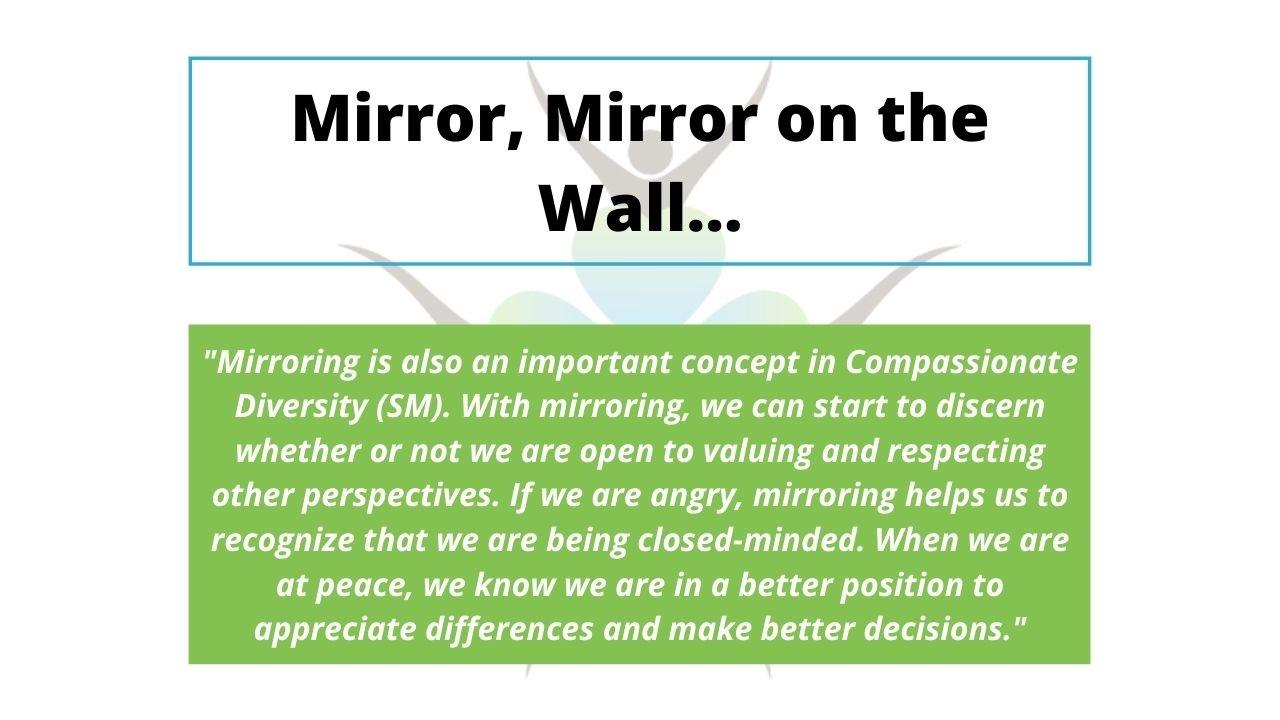
Mirror, Mirror on the Wall...
Apr 20, 2017We often use the term “mirroring” to describe reflecting someone else's actions or feelings back to them. Mirroring is intended to help us develop empathy for another person - we mirror someone else’s posture or facial expressions to get a better sense of what they are feeling.
Interestingly, scientists have found mirror neurons, “a special class of brain cells that fire not only when an individual performs an action, but also when the individual observes someone else make the same movement.” So, the neurons that fire when we see someone pick up a pencil are some of the same neurons that fire when we actually pick up a pencil. These neurons help us to not only understand the actions of other people, but also to discern their possible intentions. Think of it as catching someone else’s mood. If someone smiles at you, you get a “feeling” of smile, and (hopefully!) you smile back.
I like to think of mirroring in another way – not only can we reflect the feelings of others back to them, but we can use others to mirror back to us a reflection of ourselves. In a previous blog, I talked about how the things we see are things that are in our range of experience. It makes sense, then that we can’t see in others qualities that we, ourselves, are not familiar with.
Mirroring reflects our direct experience right back to us. When we notice qualities in other people, we can reflect back to ourselves and ask, “What piece of that quality do I have?” because, rest assured, you have it somewhere in you. When we see someone as joyful, we are reflecting the joy within ourselves. When we see someone as angry, we reflect the anger within ourselves.
That may sound like good news to some. To others, it may not.
- Mirroring is a powerful tool for self-awareness and self-reflection. It is also key to our misinterpretation of others.
- When we disagree with someone, we tend to think it’s a faulty way in which they are approaching the subject. With mirroring, we discover that the issue may actually be with us and how we are experiencing the world.
- When we read an article or email or post, we may wonder why the person is so angry. Maybe it’s just our own anger reflected back to us. The concept of mirroring would require us to ask of ourselves, “Why am I so angry?”
Mirroring is also an important concept in Compassionate Diversity (SM). With mirroring, we can start to discern whether or not we are open to valuing and respecting other perspectives. If we are angry, mirroring helps us to recognize that we are being closed-minded. When we are at peace, we know we are in a better position to appreciate differences and make better decisions.
This week, try using mirroring to help you build your self-awareness. As you engage with others, ask yourself these questions:
- “Am I projecting my feelings onto other people? What are they really feeling?”
- “What is it about this situation that makes me so happy/sad/joyful/frustrated/content/angry?”
- “What is being reflecting back to me that might help me see an aspect of myself that I haven't noticed before?”
Connect with me on social media to let me know what you discovered!
© 2017, Susan McCuistion


